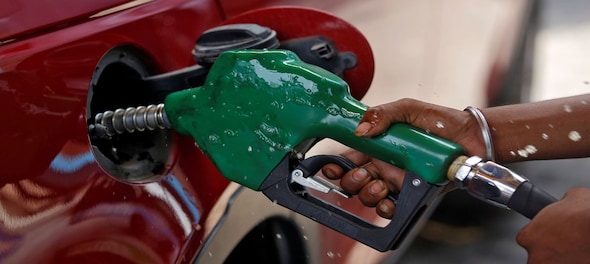
The 2024 Lok Sabha election manifesto from Dravida Munnetra Kazhagam (DMK), the ruling party in Tamil Nadu, which will be fighting the polls as part of the coalition led by the I.N.D.I.A led by the Indian National Congress, has released its manifesto.
One of the many promises is to bring petrol, diesel, kerosene and cooking gas back to the 'administered price mechanism' (APM). It means that the government would set the prices of these commodities instead of the process being determined by market forces like demand and supply.
From 1975 to 2002, petroleum products in India were under the administered price mechanism. From April 2002, the government moved on to the subsidy system whereby retailers like Indian Oil, Bharat Petroleum Corporation (BPCL) and Hindustan Petroleum Corporation (HPCL) would be compensated for any subsidy incurred in selling petrol, diesel and kerosene.
India imports more than 80% of all the crude oil it needs to produce end products like fuel. In the case of liquified petroleum gas, which goes into cooking gas cylinders, the imported quantity is more than 55% of the demand.
As the subsidy bills surged along with the international price of crude oil, the policy was widely seen as ineffective and a drain on public resources.
As a result, petrol prices were deregulated effective June 26, 2010, and the retail price of diesel became free from government control on April 19, 2014.
The decision was lauded by corporate India, the stock markets as well as foreign investors as a progressive move to liberalising the fuel market.
Since then, at least on paper and in principle, the three state-owned giants IOC, BPCL and HPCL, which account for almost all the fuel sold in India, were allowed to set prices for petrol and diesel.
However, political considerations have been evident, if not explicit, in their pricing decisions time and again.
It'd be interesting to see the response of the Congress party, which pushed through the deregulation of petrol and diesel more than a decade ago, to the promise of a return to regulation from its biggest and most stable ally, the DMK.
(Edited by : Amrita)
First Published: Mar 20, 2024 12:33 PM IST
Check out our in-depth Market Coverage, Business News & get real-time Stock Market Updates on CNBC-TV18. Also, Watch our channels CNBC-TV18, CNBC Awaaz and CNBC Bajar Live on-the-go!


Congress wants longer voting hours
Apr 28, 2024 4:04 PM
Loud echoes of Maratha reservation issue in Maharashtra
Apr 28, 2024 3:44 PM
Delhi Congress chief Arvinder Singh Lovely resigns
Apr 28, 2024 10:54 AM
Lok Sabha polls: Voter turnout in Rajasthan over 62%, down by 4% since 2019
Apr 28, 2024 8:49 AM

